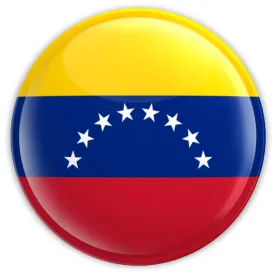On Friday, the United States significantly increased its sanctions targeting the Government of Venezuela. These new sanctions, authorized under Executive Order, are generally similar to the sectoral sanctions targeting Russia following that country’s purported annexation of the Crimea region of Ukraine. There is, however, an important distinction between the sanctions programs. The Russian sectoral sanctions are generally list-based, and the prohibitions are limited to entities contained on the Sectoral Sanctions Identification List, including unlisted companies under the so-called 50 Percent Rule. Compliance with these sanctions requires efficient resolution of screening hits on large Russian businesses such as Sberbank, Gazprom, and Lukoil. In contrast with this screening and resolution exercise, Venezuela sanctions now require significant due diligence resources to identify prohibited dealings with the Venezuelan government.[1] Whereas compliance with the sectoral sanctions on Russia requires banks to drink from a fire hose, the new sanctions on Venezuela require efforts analogous to finding a needle in a haystack.
The Executive Order prohibits United States persons from certain dealings in debt, securities, and distributions of profits involving the Government of Venezuela. United States persons are prohibited from dealings in new debt with a maturity greater than 90 days of Petroleos de Venezuela, S.A. (PdVSA), and greater than 30 days for debt of the Government of Venezuela, other than PdVSA. While the term “debt” includes bonds[2], the prohibition on dealings with bonds issued by the Government of Venezuela is not limited to those issued after the effective date of the Executive Order, or by maturity date.
The Executive Order also prohibits dealings in dividend payments or other distributions of profits to the Government of Venezuela from any entity owned or controlled, directly or indirectly, by the Government of Venezuela. It is important to note that the General License authorizing a 30-day wind-down period for dealings in certain debt, bonds and securities is not applicable to this prohibition.
Lastly, the Executive Order prohibits the purchase of securities from the Government of Venezuela, except for the securities that qualify as new debt of PdVSA with a maturity of less than or equal to 90 days, and new debt of any other part of the Government of Venezuela with a maturity of less than or equal to 30 days.
In addition to the General License that authorizes wind-down transactions for dealings in certain debt, bonds and securities, separate licenses permit the purchase of securities and dealings in debt and certain bonds involving CITGO Holding, Inc.
We will continue to follow changes in the Venezuela sanctions program and publish updates as new developments arise.
[1] The Executive Order defines “Government of Venezuela” to include “any political subdivision, agency, or instrumentality thereof, including the Central Bank of Venezuela and PdVSA, and any person owned or controlled by, or acting for or on behalf of, the Government of Venezuela.”
[2] The term debt includes bonds, loans, extensions of credit, loan guarantees, letters of credit, drafts, bankers acceptances, discount notes or bills, or commercial paper. The term equityincludes stocks, share issuances, depositary receipts, or any other evidence of title or ownership. FAQs available here.



 />i
/>i

